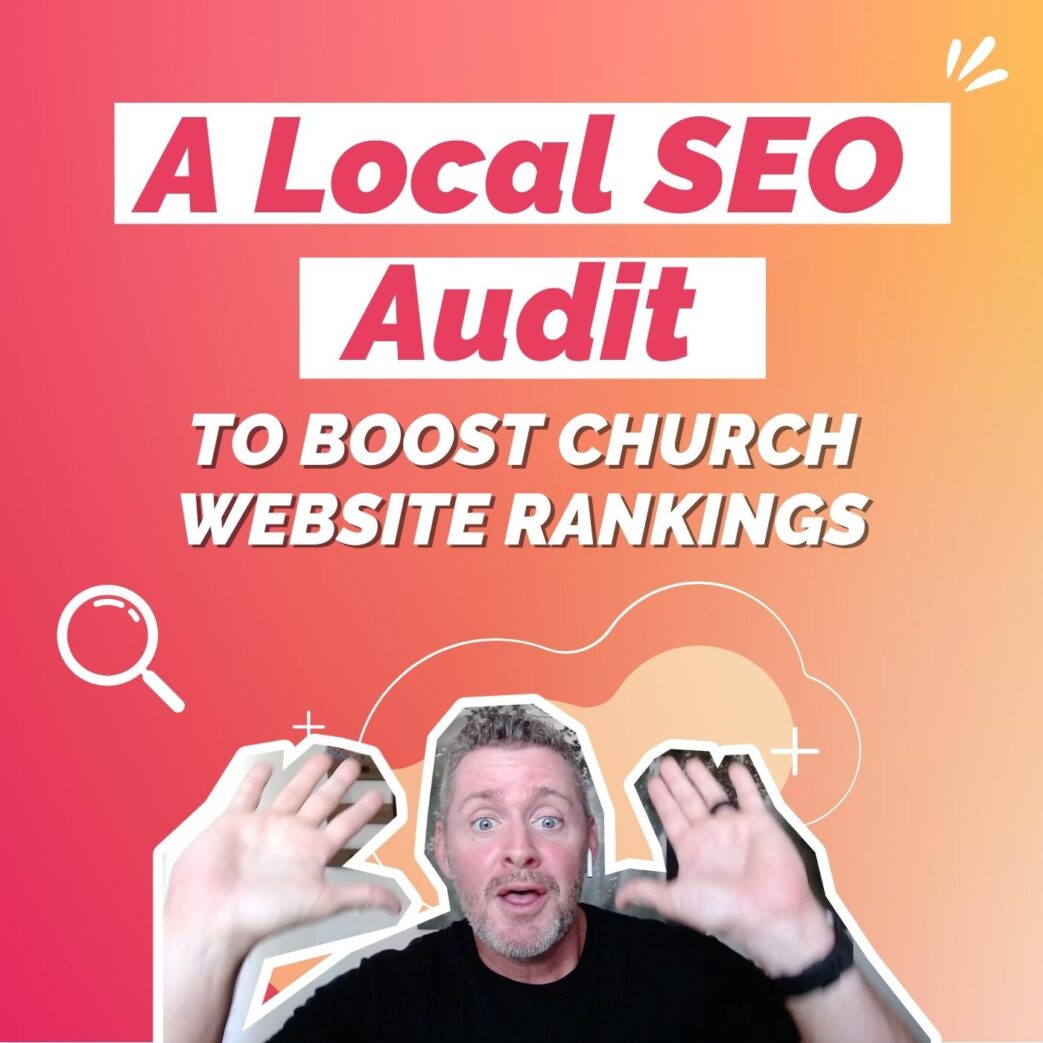As a church, doing a regular local SEO audit is vital to ensure that your local community can find you online. Whether they’re looking for an electrician or a church, people’s first step is to pull out their phones and do an internet search.
So will your church pop in those search results? Unfortunately, having a pretty website is not enough to ensure you’ll show up on page one of Google.
Local SEO (search engine optimization) is the process of optimizing your church’s website for local search results, and technical know-how is becoming increasingly important with 1.17 billion websites in the world.
Even if you’re not a digital marketing expert, you can boost your church website’s Google rankings with this local SEO audit checklist.
Table of contents
What is Local SEO for Churches?
By auditing your site regularly, you can ensure it’s visible on local search engine results pages (SERPs), which will ultimately help you reach more people in your community.
Here’s a sobering statistic: 75% of internet users never scroll past the first page of Google.
This means you need a basic understanding of local SEO to optimize your site so you can appear on the first page of local search results.
And if you want to take things a step further, aim for the top three local listings, known as the local pack (also called the Google 3 pack of the Google Map pack)
The local pack is the area on a SERP that displays three local businesses related to the searcher’s query. It includes the business name, address, and phone number and shows how far away the business is from the searcher’s location.
People are looking for a church within a certain driving distance, so it’s vital that your church shows up on the map, has accurate information, and features good ratings.
How Do Keywords Relate to Local SEO?
According to Google, local rankings are based on three primary factors: relevance, distance, and prominence.
General searches will include results from businesses and websites from all around the world, while local search results show businesses near the searcher. So before diving into the local SEO audit, we want to talk briefly about keywords.
Local keyword searches often include location-based modifiers like “near me,” “close by,” or “in [city].” Some types of keywords you need to be aware of and include in your local SEO strategy are:
- Branded or Navigational Keywords: Include your church’s name or a variation of it. For example, “New Hope Church” or “New Hope Baptist Church.”
- Local Search Keywords: Searches that include local modifiers like “near me,” “in [city],” or “[city] church.” For example, “churches near me” or “Baptist churches in Fairview.”
- Service Keywords: Searches that include what your church offers. For example, “youth group,” “children’s ministry,” or “bible study group in Fairview.”
- Generic Keywords: These are the most common local search terms. They’re usually just one or two words and don’t include your church’s name. For example, “churches” or “church.”
Incorporating the right keywords is critical for your on-page optimization strategy. Now let’s move on to the local SEO audit checklist for churches.
How Do You Do a Local SEO Audit as a Church?
To stay relevant, you need to do periodic check-ups, where the local SEO audit comes in. Based on advice from Google and SEO experts, here are elements you want to cover.
NAP Consistency
One of the most crucial local SEO ranking factors is NAP consistency, which stands for name, address, and phone number. This information needs to be correct across your whole website-including your social media profiles, Google Business Profile, and anywhere else your church’s name appears online. If this information is incorrect or inconsistent, it will confuse Google and hurt your rankings.
Google Business Profile
The Google Business Profile (GBP) listing is one of the most crucial local SEO ranking factors for churches. The GBP listing allows businesses to control how they appear on Google Maps and local search results. Make sure you provide as much complete, accurate information as possible. To claim your listing, go to google.com/business and follow the prompts.
Reviews and Testimonials
Google uses reviews and testimonials to signal your “prominence” ranking factor. So it’s essential to encourage your church members to leave reviews and that you respond to your reviews. You can also link to any positive online reviews in your website’s sidebar or footer.
Directories and Citations
These are mentions of your church’s NAP information on other websites and sometimes include reviews. The more listings and citations you have, the better. You can create listings on directories like Yelp, the Chamber of Commerce, or other local directories. You also need to ensure all your listings stay accurate and updated over time.
Site Speed
Site speed is a critical ranking factor, so you want to make sure your church website loads quickly. Test your site’s speed with Google’s PageSpeed Insights tool, and then follow their recommendations for how to improve your site’s speed.
On-Page SEO
This is the process of optimizing individual web pages to rank higher in search results. You’ll want to consider optimizing on-page SEO factors for your church website, including page titles, meta descriptions, header tags, and image alt tags.
How Can You Get Help With a Church Local SEO Audit?
While this list may sound straightforward, it can be daunting if you don’t have a lot of SEO experience or don’t have extra time on your hands. Fortunately, you don’t have to go it alone.
You can head over to our website and click on the “Local SEO” tab to get a free local SEO report for your church’s website. The REACHRIGHT team is here to help you tackle local SEO and develop your overall online strategy.
Don’t hesitate to reach out and let us know how we can help your church!






Comments 1
yes we need missionaries,to come serv our local church